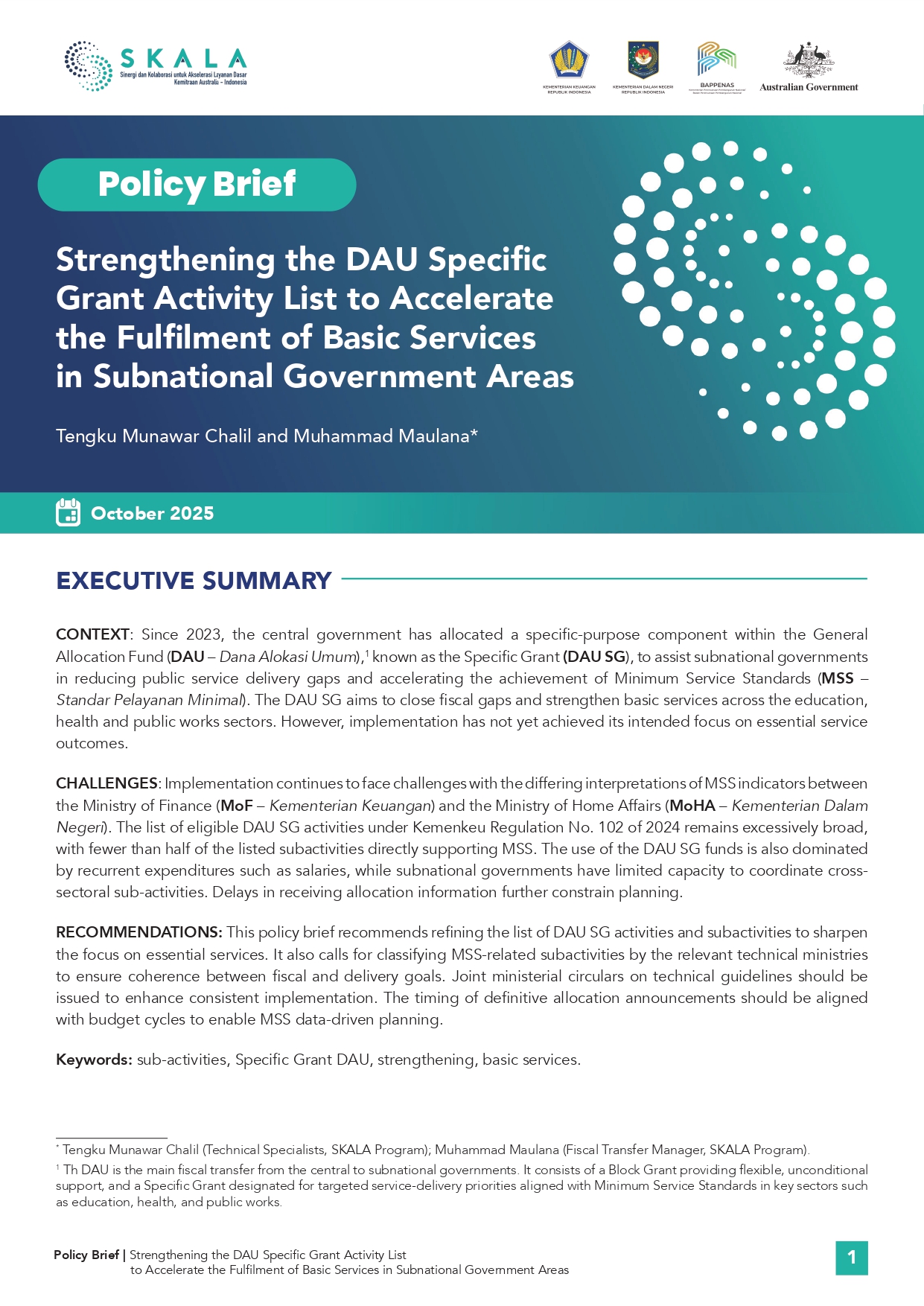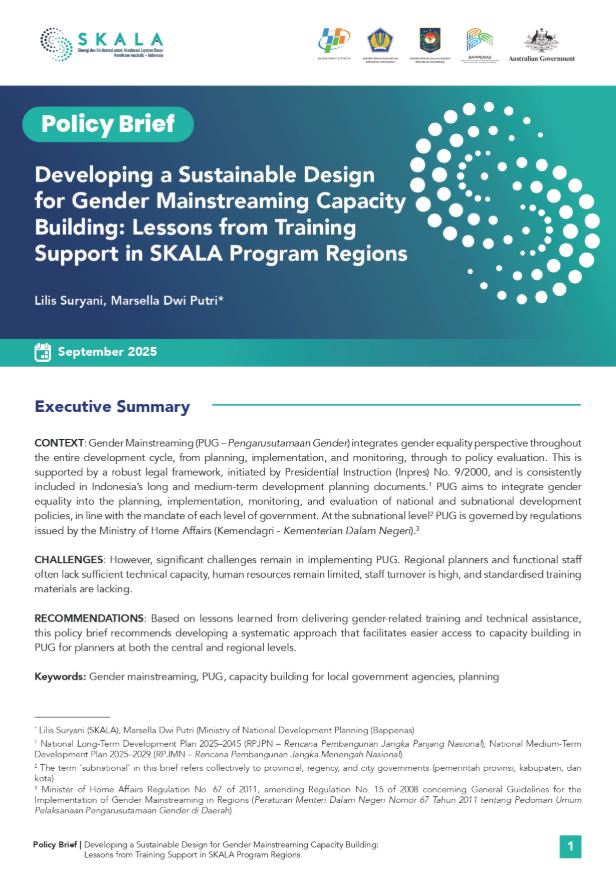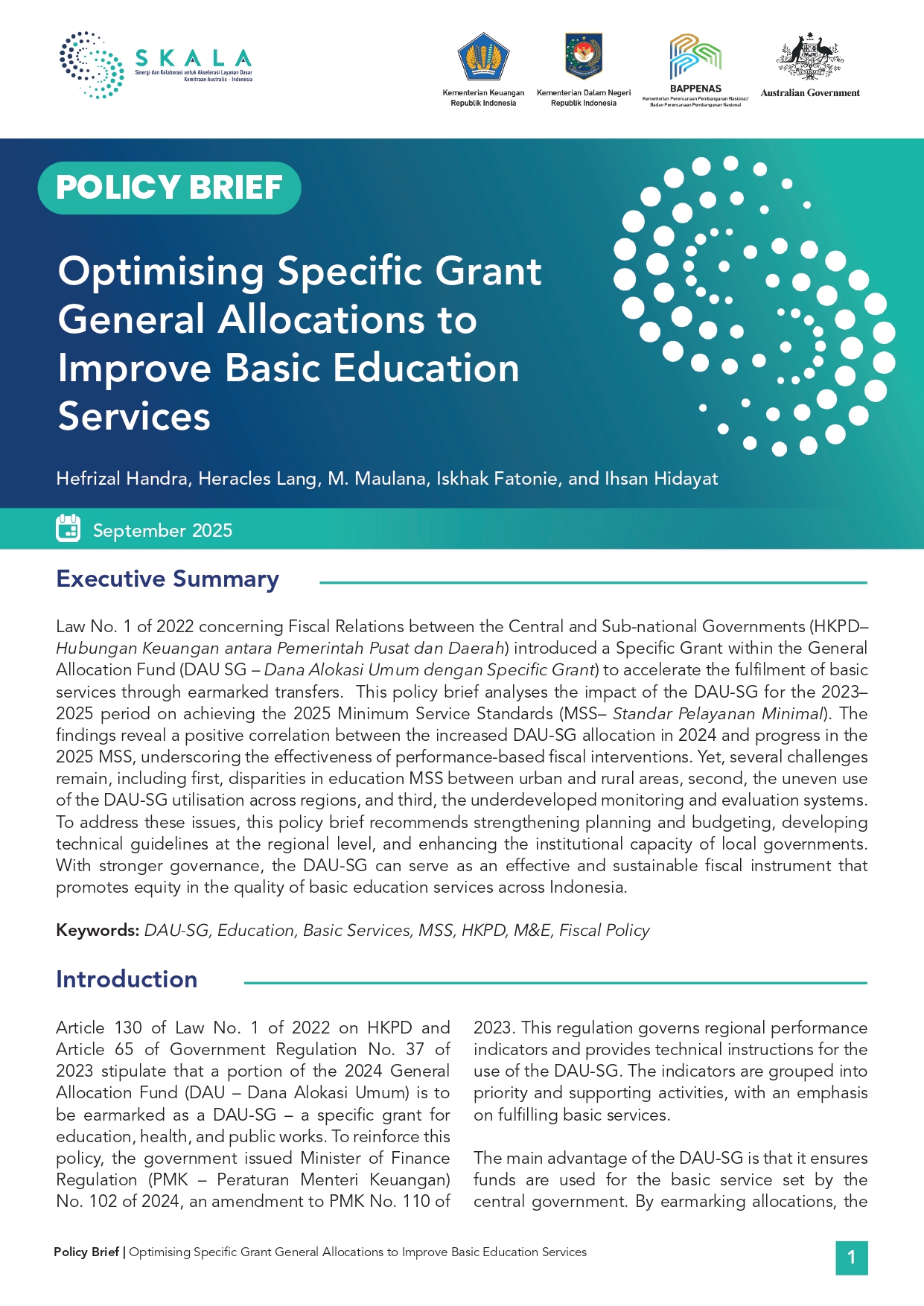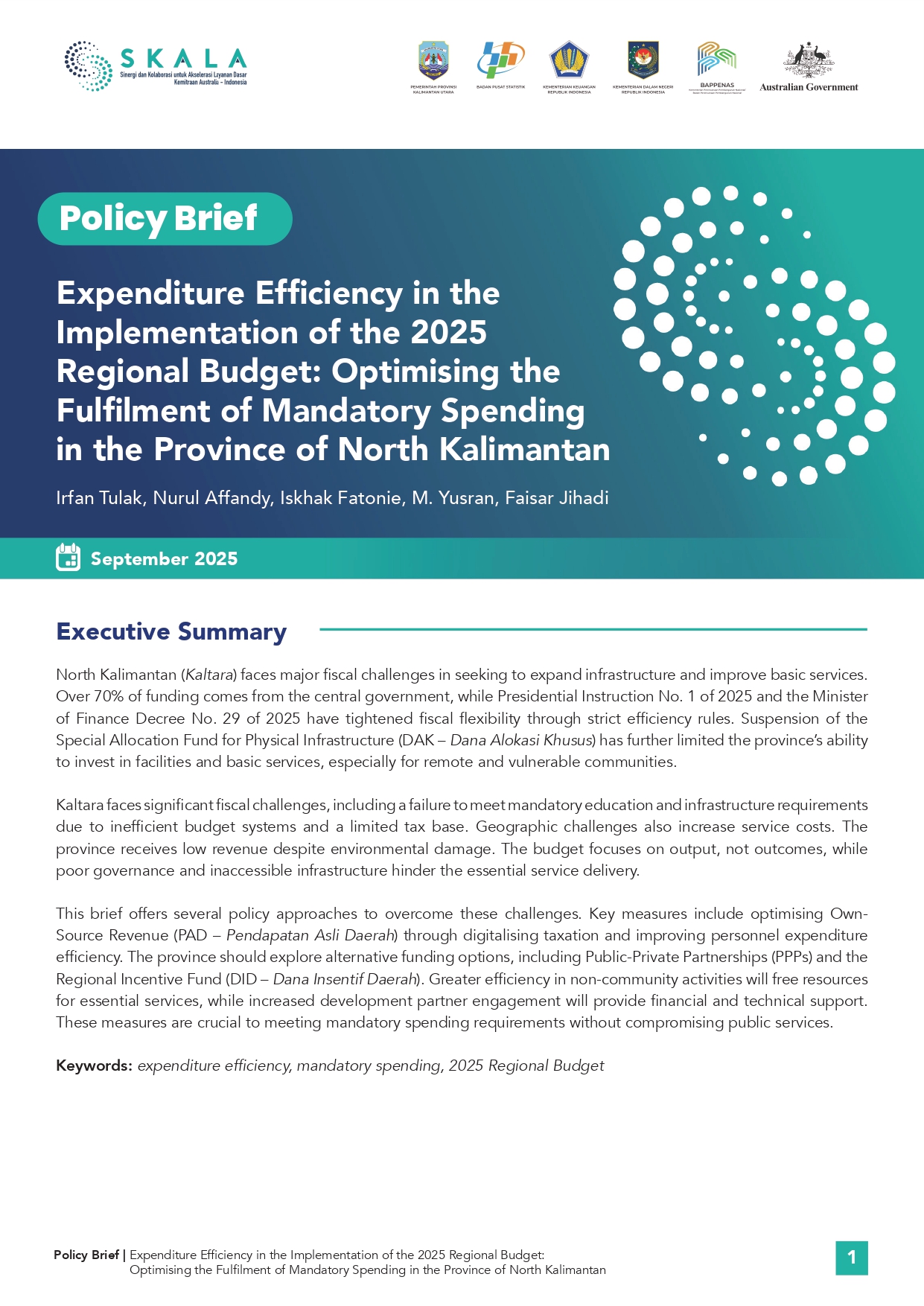- All
- Data & Analytic
- DJPK
- GEDSI
- Gender Responsive Budgeting
- MSS
- PFM
- Public Financial
- SKALA
- Standard
- Top 10

Since 2023, the central government has allocated a specific-purpose component within the General Allocation Fund (DAU), known as the Specific Grant (DAU SG), to assist subnational governments in reducing public service delivery gaps and accelerating the achievement of Minimum Service Standards (MSS). The DAU SG aims to close fiscal gaps and strengthen basic services across the education, health and public works sectors. However, implementation has not yet achieved its intended focus on essential service outcomes. Implementation continues to face challenges with the differing interpretations of MSS indicators between the Ministry of Finance (MoF) and the Ministry of Home Affairs (MoHA)....

Gender Mainstreaming (PUG – Pengarusutamaan Gender) integrates gender equality perspective throughout the entire development cycle, from planning, implementation, and monitoring, through to policy evaluation. This is supported by a robust legal framework, initiated by Presidential Instruction (Inpres) No. 9/2000, and is consistently included in Indonesia’s long and medium-term development planning documents. PUG aims to integrate gender equality into the planning, implementation, monitoring, and evaluation of national and subnational development policies, in line with the mandate of each level of government. At the subnational level, PUG is governed by regulations issued by the Ministry of Home Affairs (Kemendagri - Kementerian Dalam...

Law No. 1 of 2022 concerning Fiscal Relations between the Central and Sub-national Governments (HKPD– Hubungan Keuangan antara Pemerintah Pusat dan Daerah) introduced a Specific Grant within the General Allocation Fund (DAU SG – Dana Alokasi Umum dengan Specific Grant) to accelerate the fulfilment of basic services through earmarked transfers. This policy brief analyses the impact of the DAU-SG for the 2023– 2025 period on achieving the 2025 Minimum Service Standards (MSS– Standar Pelayanan Minimal). The findings reveal a positive correlation between the increased DAU-SG allocation in 2024 and progress in the 2025 MSS, underscoring the effectiveness of performance-based fiscal...

North Kalimantan (Kaltara) is facing significant fiscal challenges in implementing its 2025 Regional Budget, particularly in meeting mandatory spending for education and infrastructure. With over 70% of funding reliant on central government transfers and the suspension of the Special Allocation Fund, the province struggles to expand essential services amid rising costs and limited local revenue. This policy brief highlights strategies to optimise budget efficiency, including digitalising taxation to strengthen Own-Source Revenue (PAD), streamlining personnel expenditure, leveraging Public-Private Partnerships (PPPs), and enhancing collaboration with development partners. By improving governance, reallocating funds from non-essential activities, and adopting impact-oriented spending, Kaltara can better...

Inaccurate data on Social Welfare Services (PPKS) is the issue that most slows down the achievement of social welfare program targets managed by the North Kalimantan Provincial Social Service. Data sourced from districts/cities is often considered inaccurate or outdated. As a result, this data does not support the formulation of planning and evidence-based policy documents. However, these documents determine the efficiency, effectiveness, and impact of the utilization of the social welfare program budget in North Kalimantan. This policy brief identifies several problems, namely: the absence of guidelines regulating data collection standards as well as data verification and validation, a lack...






